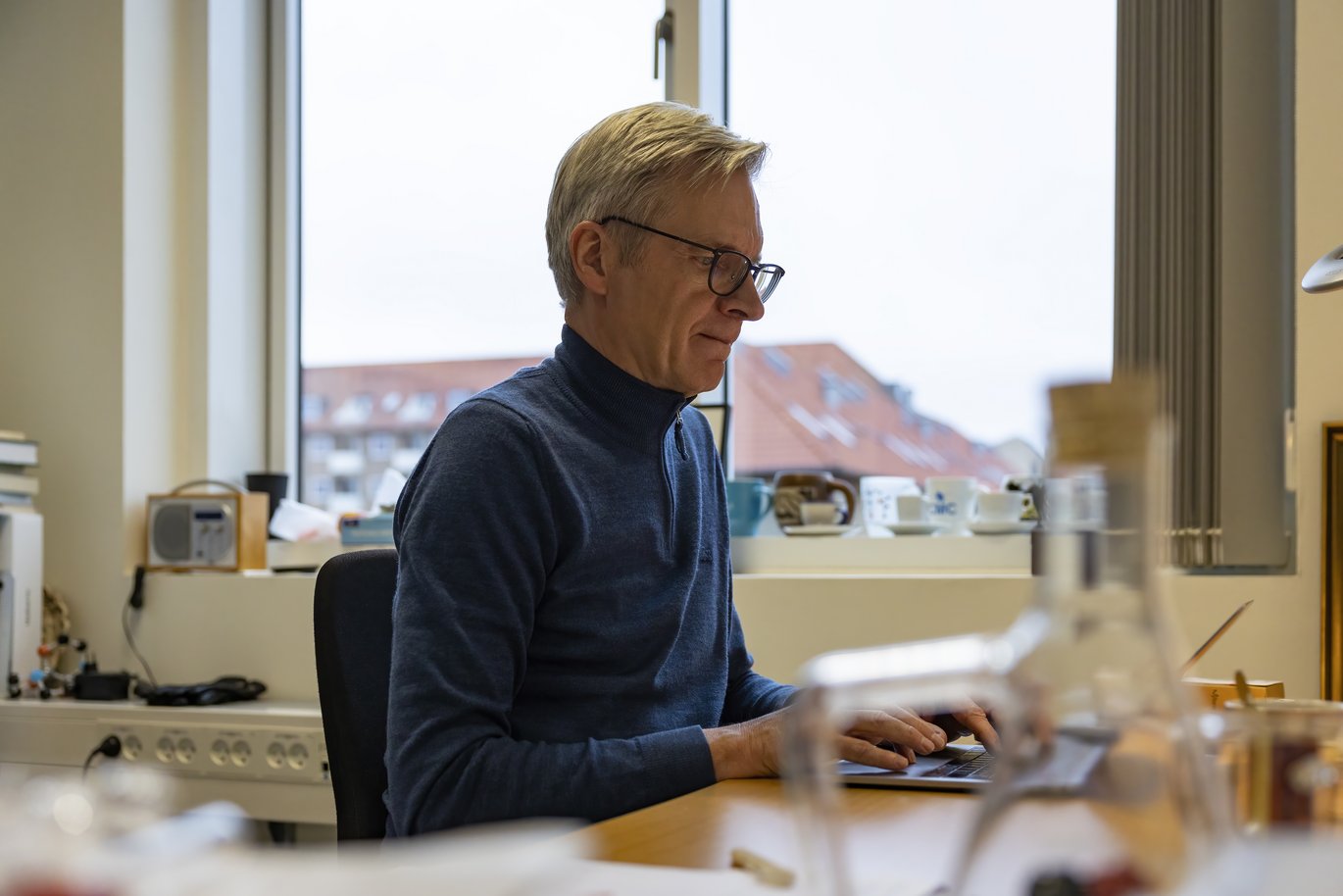Professor: Industry partnerships shape our success
Professor Troels Skrydstrup finds great motivation in working with business and industry to solve the problem of wind turbine material recycling.

There are major issues, and then there are MAJOR issues. Troels Skrydstrup, an internationally recognised researcher, sets out to solve some of the biggest.
Wind turbines must be discarded after a maximum of 30 years, and there is no technology to recycle the materials. According to one estimate, we will have 43 million tonnes of end-of-life wind turbines in 2030. What will happen to them?
Against this backdrop, it is not surprising that the Innovation Fund Denmark was ready with significant financial support, as a research group wanted to investigate methods to break down the plastic material epoxy, which makes up a large part of wind turbine components and is normally almost impossible to break down.
The research is led by professor Troels Skrydstrup, who is also the centre director of the research centre CADIAC (Carbon Dioxide Activation Centre) and co-direc- tor of Aarhus University’s The Novo Nordisk Foundation CO2 Research Centre (CORC). The research is being conducted through the CETEC (Circular Economy for Thermosets Epoxy Composites) consortium, which includes the Danish Technological Institute (DTI), Aarhus University, and the two companies Vestas and Olin.
“We have identified a very effective method for breaking down the epoxy polymer into some of the original building blocks, which can then be used to rebuild new plastic material. We’ve filed two patent applications, and one of our business partners has already expressed interest in one of them,” he says.
Applied research
Troels Skrydstrup, who has a long research career behind him, is inspired by the close collaboration with industry that characterises the work at CETEC.
“Naturally, the commercial world has different goals than our independent research. You quickly determine whether a method is too expensive, too toxic, or perhaps even prohibited. This steers our research in a single direction, towards concrete and applicable methods. It is extremely motivating for both myself and the students,” he says.
Troels Skrydstrup has transitioned from basic research, where his findings were only a minor component of a product, to being at the forefront of research that maps out very specific solutions to defined problems. In reality, the difference between the two types of work may not be that great.
“It’s exciting to be able to keep learning new things, and I like to see how our research directly contributes to solving some very big challenges.”
Major grants
Troels Skrydstrup is also involved in the RePURpose project (Aarhus University, DTI, and private partners), which works to recycle polyurethane from insulation and foam products. By using various chemical methods, the goal is to break down the plastic material into its original building blocks, allowing the same polyurethane-based product to be rebuilt.
Finally, the professor has recently begun work on Aarhus University’s CORC project, which has received a DKK 630 million grant for its research on the use of plastic materials to capture CO2.
“60% of everything we make ends up as waste at some point. That is why it is critical that we have a waste strategy and know what we will do with it. It’s very exciting if plastic materials, which will eventually end up as waste, can help us capture CO2,” Troels Skrydstrup adds.
Want more information?
⦁ Reach out to Thomas Korsgaard at tkors@au.dk for more information on collaboration between researchers and large companies